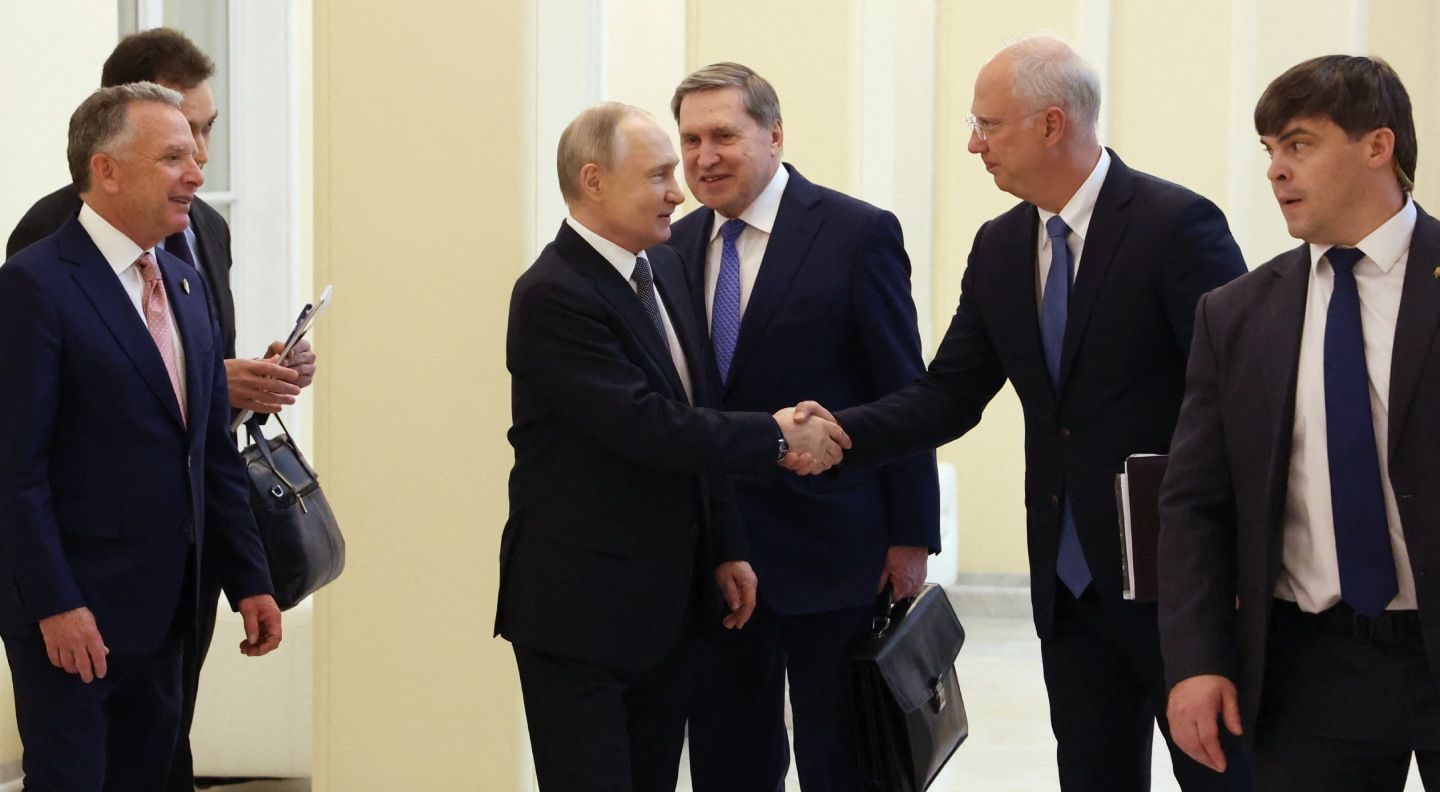Since the full-scale invasion of Ukraine in 2022, Russia’s use of informal diplomacy has become mainstream, and proxy diplomats play an increasingly important role in determining foreign policy. While the Kremlin seems happy with this blurring of the line between official and unofficial, there are some major drawbacks—not least that it makes it harder to strike proper deals with other nations.
The trend has been well illustrated by the nature of the negotiations between Russia and the United States over a possible ceasefire in Ukraine. The main points of contact between the two countries in these talks have not been foreign ministries, but the relations forged by U.S. President Donald Trump’s envoy Steve Witkoff and Kirill Dmitriev, the head of the Russian Direct Investment Fund (who is known to be close to President Vladimir Putin).
Witkoff has held several meetings in Moscow, while in April, Dmitriev became the highest-ranking Russian official to visit Washington since February 2022. Each time, both sides claimed the talks were a success—though it’s not clear exactly what they achieved.
An experienced business negotiator, Dmitriev appears to have figured out how to manipulate Trump, avoiding topics that irritate the U.S. president (like the war in Ukraine), and instead proposing tempting “deals” involving Arctic exploration, resource extraction, and space missions. Dmitriev has also become a regular user of social media, where he posts optimistic screeds lavishing praise on Trump and his associates such as the billionaire Elon Musk. As a result, Dmitriev appears to have supplanted Russia’s official diplomats—not only the Foreign Ministry, but also those in the Kremlin charged with overseeing foreign policy.
Perhaps inevitably, Russia’s diplomats are not very happy with Dmitriev’s growing clout. There have been plenty of leaks to the media about how Foreign Minister Sergey Lavrov and Putin’s foreign policy adviser, Yuri Ushakov, opposed Dmitriev’s presence at U.S.-Russia talks in Saudi Arabia.
However, Dmitriev is not the only example of a senior Russian bureaucrat who has acquired an unofficial foreign policy brief in recent months. Putin’s deputy chief of staff, Sergei Kiriyenko, who on paper is in charge of managing domestic politics, now also has oversight of the breakaway Georgian regions of Abkhazia and South Ossetia, as well as the Moscow-backed separatist state of Transnistria, and talks with friendly governments in Africa.
Initially, Kiriyenko was assigned to oversee Abkhazia, but his role in the political crisis there in late 2024, which included ensuring a more Moscow-friendly candidate triumphed in presidential elections, meant he was able to expand his influence. Involvement in South Ossetia will likely include liaising with officials in Tbilisi, while responsibility for Africa will help African governments not only resolve issues with Moscow, but also reach out to Russian tycoons and ministers with Kiriyenko’s assistance.
Sergei Shoigu, the head of the Security Council, is also involved in Russia’s informal diplomacy, and he regularly visits friendly countries like Iran and China to meet with both security officials and heads of state. Examples include Shoigu’s meeting with Chinese leader Xi Jinping in February, and his face-to-face with North Korea’s Kim Jong Un in September 2024. Shoigu’s Security Council predecessor, Nikolai Patrushev, left the country far less often and never held talks with heads of state.
In other words, Dmitriev, Kiriyenko, and Shoigu have all become Kremlin proxy negotiators who can relay Putin’s wishes and pick up signals. On the one hand, this practice has helped Russia escape from the international isolation in which it found itself after the full-scale invasion of Ukraine. Trump, for example, is clearly more comfortable relating to Dmitriev than to Russian diplomats and security officials.
On the other hand, there are downsides to this sort of diplomacy. Every Russian proxy has idiosyncrasies and inclinations, as well as their own understanding of what Putin is seeking. It is well known that Putin often doesn’t make his position clear to either the Foreign Ministry or unofficial representatives like Dmitriev. And that can result in nasty surprises for interlocutors—like Trump.
Another problem with this approach has been on display in the Russia-U.S. negotiations. Every time Dmitriev emerges from talks, both sides are radiant with optimism—but that quickly dissipates following more routine contact between professional diplomats, and security officials, from the two sides. In other words, the Kremlin proxies that were selected to play the “good cop” role create dangerously unrealistic expectations.
Finally, a lack of formal responsibility means deals with Russia risk becoming little more than “personal agreements.” Such agreements can easily be jettisoned if individuals—like Kiriyenko or Dmitriev—fall from grace.
As a result, Russia’s foreign policy is becoming more and more labyrinthine. While unofficial envoys might be good at helping to kickstart dialogue, reaching conclusive agreements is becoming more and more complicated. The negotiations with the United States show that Russia’s relations with other nations are increasingly dependent on the skills and beliefs of individual actors. And sooner or later, those actors will start competing not only with the Foreign Ministry, but with each other.
If this practice of hybrid, proxy diplomacy continues, Putin risks making Russia an unreliable international partner, even for friendly nations. The only winners will be ambitious officials like Dmitriev, Kiriyenko, and Shoigu who will use the opportunities offered by proxy diplomacy to advance their own careers.




